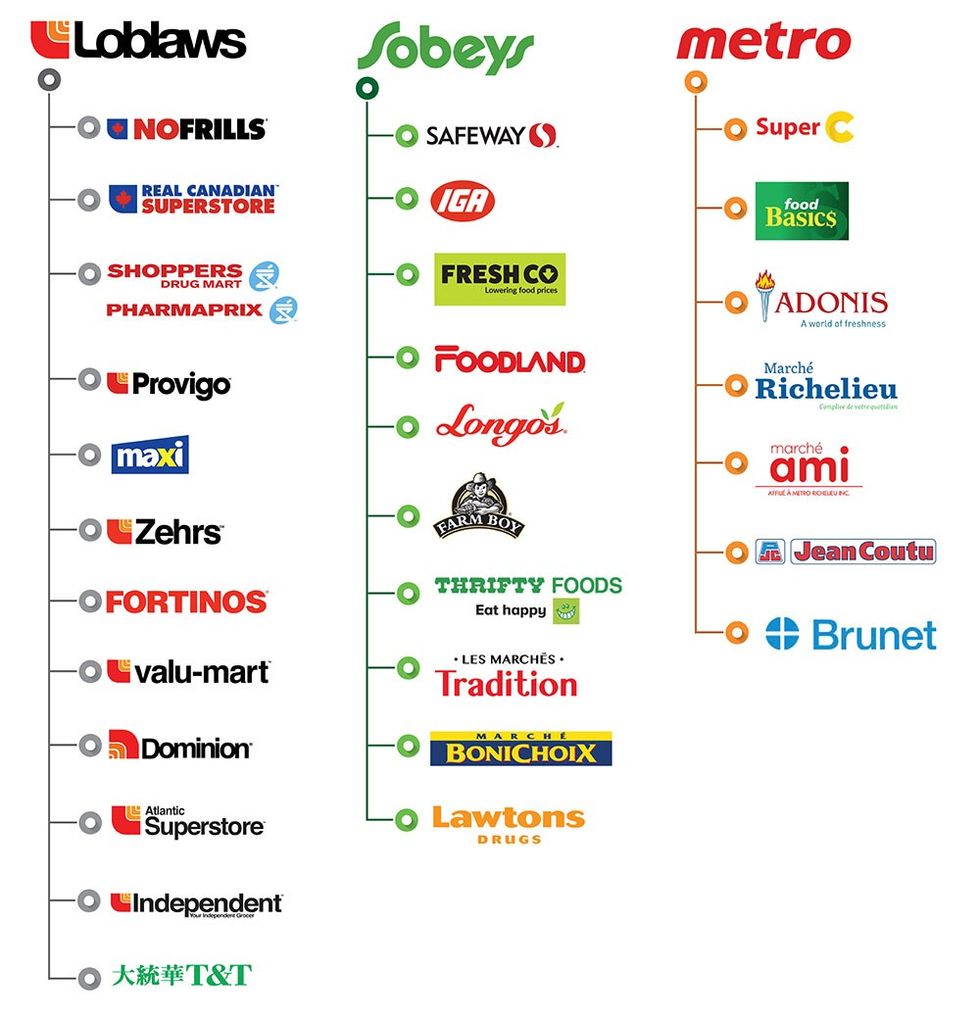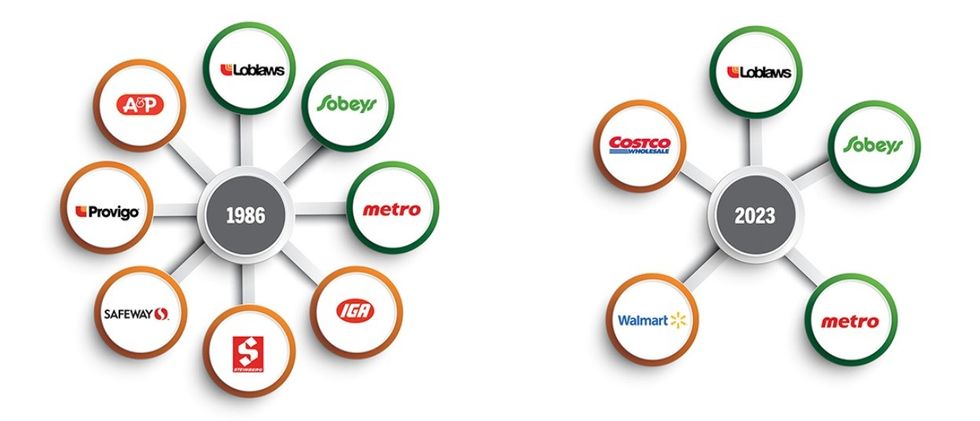On Wednesday, Canada's Competition Bureau, the law enforcement agency that protects consumer interests, detailed its preliminary enforcement approach regarding the use of property controls in commercial real estate, which are commonly used in the retail sector and believed to be anti-competitive.
The new enforcement approach is focused on the following two types of property controls:
- Exclusivity clauses, which appear in leasing agreements and prohibit the landlord from leasing space to tenants that are deemed competitors of the existing tenant; and
- Restrictive covenants, which are covenants on land that prevent a purchaser or owner of a commercial property from certain uses.
The two kinds of property controls are the focus of the Competition Bureau's investigation into Empire Company Limited and George Weston, the parent companies of Sobeys and Loblaws, the two largest grocery chains in Canada, according to the Competition Bureau.

"These property controls insulate firms from competition," says the Competition Bureau. "Therefore, by their nature these property controls can raise serious competition concerns." Action against the use of property controls has been taken around the world, the Competition Bureau says, including in the United Kingdom and New Zealand.
Potential Enforcement Options
The Competition Bureau says one avenue through which enforcement will occur is the abuse of dominance provisions under the Competition Act.
"Where a dominant firm uses a competitor property control that is an anti-competitive business practice or has the effect of harming competition we will likely seek an order prohibiting its use or enforcement," the Competition Bureau said in enforcement guidance it published on Wednesday. "If we determine that there is evidence to demonstrate that a competitor property control is both an anti-competitive business practice and has the effect of harming competition we may also seek additional measures to restore competition or administrative monetary penalties. For restrictive covenants, we are also likely to seek administrative monetary penalties where possible, due to the heightened concern associated with this type of control."
Through the anti-competitive collaboration provision (Section 90.1) of the Competition Act, the Competition Bureau says it can also "prohibit any person from carrying out any activities related to the agreement," order measures be taken to restore competition, "order any person to take action if both the Commissioner and that person consent," and order the payment of administrative penalties.
Currently, Section 90.1 only applies to instances that involve at least two competitors, but amendments were made to the Competition Act in December 2023 that allows it to be applied to instances that do not involve competitors, if "a significant purpose of any part of the agreement is to prevent or lessen competition in a market." This change is set to come into effect on December 15, 2024.
"Our preliminary view is that the same rationale that competitor property controls are generally anti-competitive business practices in the context of the abuse of dominance provisions will also apply to the analysis under section 90.1," the Competition Bureau says. "Therefore, section 90.1 could apply to competitor property controls where there is proof that the agreement has the effect of harming competition."
Justifiable Uses of Property Controls
The Competition Bureau says that it recognizes that the use of property controls can be justified in certain instances, such as when companies are entering a market, but adds that even in those cases, "they must be as limited as possible to be justified."
"For example, a limited exclusivity clause may be pro-competitive if no retailer would otherwise make the necessary investments to become a key tenant in a new shopping plaza," says the Competition Bureau. "Without the exclusivity clause there may be no retailers of a particular type in the shopping plaza, and so the clause increased competition. However, it is important to note that even in such cases the way the competitor property control protects these incentives is by insulating the retailer from the threat of competition from rivals."
In these scenarios, key considerations regarding whether the use of property controls is justified are the duration and scope of the restriction.

Specifically regarding exclusivity clauses, the Competition Bureau says they are "only justified in limited circumstances, such as where they go no further than necessary to encourage new entry or to allow a tenant to make investments to develop their storefront," because "the presence of competitors could in turn reduce the benefit the key tenant receives from its investments in opening their store," which could "reduce or eliminate their incentive to make the investments unless they are protected by a exclusivity clause."
On the use of restrictive covenants, however, the Competition Bureau is must stricter.
"Restrictive covenants are exclusionary. Restrictive covenants apply to the land itself, and can restrict future owners of the land. They tend to be long lasting, and can create areas where no competitor can operate. Importantly, restrictive covenants create advantages for companies that have historically operated in an area based on their past ownership of land. We do not consider their use to be justified outside of exceptional circumstances."
After detailing the new preliminary enforcement approach, the Competition Bureau is now seeking feedback from tenants, lessors, and landowners.
"Canadians are encouraged to provide feedback on the guidance, along with bringing other pertinent issues to our attention. The feedback received as part of the Bureau's consultation on this guidance will help inform how the Bureau evaluates the competitive impact of property controls."
"Our approach continues to develop," the Competition Bureau added. "We may revise our approach as we gain more experience, as circumstances change, or as the law evolves."
Those interested in submitting feedback will have until Monday, October 7 to do so.




















